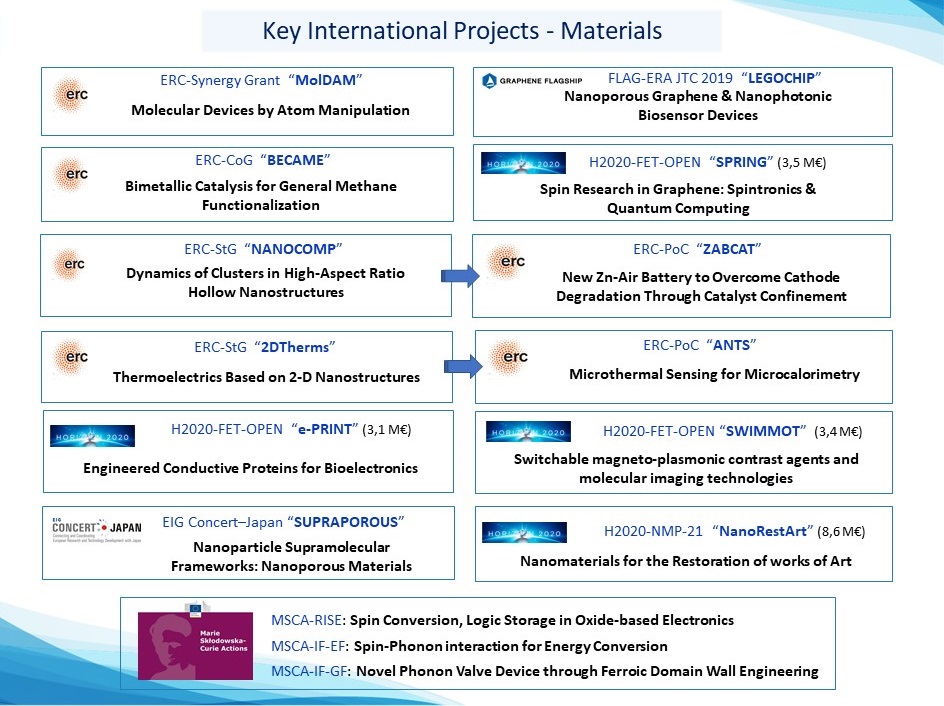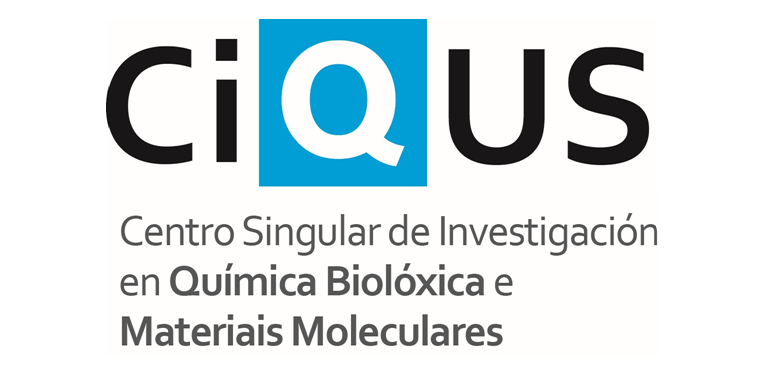CiQUS address interdisciplinary challenges at the boundary of Chemistry with Biology and Materials Science. CiQUS consist of 18 research groups (11 ERC projects, including 4 ERC-PoC), which obtain 8 MEUR/year in competitive funds (2019-2021) and an average Impact Factor of 8,04 (JCR) during the same period.
Summary of key research topics:
- MATERIALS: i) Metal-Carbon Hybrid Nanostructures for Spintronics & Energy; ii) Tailored Nanographenes; iii) Magnetic, electronic & thermal properties; iv) Chirality. Stimuli-Responsive polymers; v) Organic, inorganic & metallo-organic materials
- BIOMED: i) Functional materials (peptides, nanoparticles, MOFs…) for drug & gene delivery, theragnostic or cell reprogramming; ii) Bio-supramolecular chemistry & nanotechnology at the interface with cell biology
- SYNTHESIS: i) Selective, innovative and sustainable synthetic methodologies; ii) Catalytic transformations in biological media; iii) Theoretical & computational chemistry




